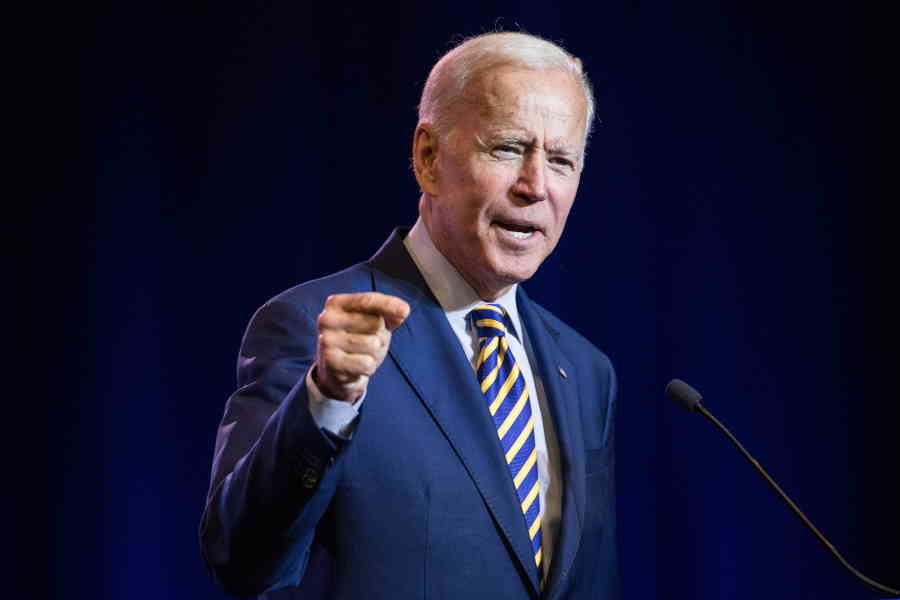

United States Visa Interview Questions: Here’s What to Expect


Before being issued an immigrant visa or a non-immigrant visa for entry to the United States, you will be required to attend a visa interview at a U.S. Consulate. The purpose of the interview is to determine whether you are eligible for the visa for which you have applied, and to make sure all of the required documents are in order. In addition, your US visa interview will also involve answering questions as a participant.
It is important to answer all questions truthfully, and in as much detail as possible, as incomplete or untruthful answers can result in your visa being denied.
Types of US Visa Interview Questions:
The questions you will be asked may vary according to the type of visa for which you have applied, but there are general questions that you should expect to answer in any visa interview. These might include:
- What is your full name and address?
- Have you ever been arrested for or convicted of a crime?
- Have you ever traveled to the United States?
- Have you ever been deported from the United States?
- Have you ever been denied entry to the United States, or denied a U.S. visa?
- Do you have relatives in the United States?
- Do you intend to work in the United States?
US Visitor Visa Questions
If you are applying for a visitor visa, you may expect questions about how long you will be visiting, where you will be staying, and how you will be supporting yourself during your trip. You may also expect questions about your home, family, and work in your home country. The purpose of these questions is to determine whether you have sufficient ties to your country, and that you do intend to return to your home country after your visit. The consular official may ask for documents showing property you own, proof of employment or enrollment in school, statements showing bank accounts and other assets, and the names and addresses of family members in your home country.
US Fiancé Visa Questions
If you are applying for a fiancé visa, or for an immigrant visa based on marriage to a U.S. citizen or permanent resident, you will be asked about your relationship with your fiancé or spouse. The purpose of these questions is to determine whether your relationship is a bona fide relationship, and not a relationship entered into solely for the purpose of immigration. These questions might include:
- When and where did you meet?
- How did you meet?
- If you are married, when and where did you get married? Who attended the wedding?
- Where does your spouse/fiancé live?
You should also expect questions about your spouse/fiancé, such as names and ages of their children, names of siblings, names of their parents, where your spouse/fiancé works, and their date of birth. If you know very little about your spouse/fiancé or their family, the consular official may suspect that your relationship is not bona fide, and your visa application may be denied.
You may also be asked health questions, such as whether you have been exposed to Covid or other communicable diseases.
Answers all questions truthfully and completely, and if you are uncertain or do not know an answer, just tell the interviewer that you do not know the answer or cannot remember. It is better to say you do not know than to give an incorrect answer.


How to Get a Work Visa for the United States


A common misconception about immigrating to the United States is that anyone with a degree or job skills may apply for a US work visa. Unfortunately, this is not the case. U.S. immigration policy since the 1960s has been focused primarily on family reunification, making work-related visas a second priority. Nevertheless, if you want to know how to work in the United States on a work visa, there are definitive steps you can take to increase your chances.
Labor Certification
The permanent labor certification program, also known as PERM, is a means by which an immigrant with a job offer from a U.S. company can come to the country as a permanent resident. The process is long and complex but can result in permanent residence for the worker and their immediate family. The immigrant must have a U.S. employer as a sponsor, and the employer must go through a certification process in which they must advertise the job opening and prove that there are not enough qualified U.S. workers to fill the position. After the labor certification process is complete, the employer will file a Petition for Immigrant Worker with USCIS.
National Interest Waiver
Immigrants who have achieved national or international recognition in their fields, have won prestigious awards or prizes, or who have in other ways demonstrated a high level of achievement, can apply for permission to immigrate to the United States without having a job offer.
Temporary Work Visas
Temporary work visas to the United States are available to workers of all skill and education levels. These include:
H1B visas
The H1B visa is available to workers who have the equivalent of a U.S. Bachelor’s degree or higher. The H1B program requires a U.S. sponsor, but does not require that the employer prove that there are no qualified U.S. workers. The employer must be offering a position that requires at least a bachelor’s degree and must be willing to pay the prevailing wage for the offered position. An H1B visa is good for up to six years, during which the worker may apply for a permanent visa through the labor certification process.
H2A and H2B visas
The H2A and H2B visas are available for temporary or seasonal positions. Some examples are:
- Hotel, restaurant, and resort jobs
- Agricultural jobs
- Seasonal retail jobs
J Visas
Exchange visitor visas, or “J” visas are available to students, scholars, interns, researchers, and others. Many students come to the United States to work temporarily and then travel. Categories of J visas include:
- Au Pairs
- Camp Counselors
- Physicians
- Researchers
- Summer work/travel
A list of all temporary US work visas and their requirements can be found on the U.S. Department of State website.


Why is Immigrating to the United States So Hard?


Navigating the U.S. immigration system is an often difficult process, with numerous forms, eligibility requirements, and long waiting times for visas.
It may appear to potential immigrants that the United States does not want them, and that the cumbersome immigration process is designed to keep people out. While it may sometimes appear that way, in reality, the United States still leads the rest of the world in the number of immigrants admitted each year, both in real numbers and as a percentage of the overall population.
Why, then, is it so difficult to immigrate to the United States? A short lesson on immigration history may help answer this question.
US Immigration Difficulties: A Short History
While U.S. citizenship has been regulated since the late 1700’s, the U.S. Congress did not pass laws restricting immigration until the end of the 19th Century, after the U.S. Civil War. The first immigration law was passed in 1882, in response to a large influx of Chinese immigrants to the country. The United States and many other countries’ immigration laws continued to be focused on balancing the numbers of immigrants by country or region until after World War II.
The Immigration and Nationality Act, which governs all immigration to the United States, was passed in 1965, and significantly changed U.S. immigration policy. National quotas were abolished, and the focus of U.S. immigration policy changed from national quotas to family reunification. More visa numbers were allocated to relatives of citizens and permanent residents, while immigration for employment was given lower priority. At the time, the focus on family reunification was seen as a positive humanitarian measure, allowing families long separated to reunite.
Many other countries have updated their immigration policies to recognize the fluidity of business and employment in the 20th and 21st centuries.
Canada, for example, has a points-based immigration system in which a person with no family ties and no concrete job offer can still obtain an immigrant visa by demonstrating language proficiency, job skills, education, and other attributes that are considered positive. United States immigration policy, however, remains focused on family reunification. This is good news for people who have family members in the country, but bad news for young college graduates and entrepreneurs who want to pursue employment and business opportunities in the United States.
Even for those with family members in the United States, immigrating can be difficult. While national quotas no longer exist, the United States issues a finite number of visas each year in each visa category. In order to make the system fair for immigration throughout the world, the number of visas issued to citizens of each country is limited to no more than 7 percent of the total number of visas issued. That means that, for citizens of some countries, there will be long waiting lists for visas, as there are usually more applicants than there are visas available.
Many politicians and political analysts in the United States believe that a complete overhaul of the immigration system is needed, and President Biden has promised that immigration reform would be a priority of his administration, but when a change might happen and the form it might take is still unknown.


How To Prepare for a US Visa Interview


After you have applied for your U.S. visa and submitted the required documents online, the final step before being issued a visa is an interview at the U.S. consulate. You and your attorney (if you have one) will be notified of your interview date by mail. Once you receive the notice, you should make sure you are prepared before you go for your interview. If you do not have everything that has been requested, issuance of your visa will be delayed. In this post, we take a deep-dive into how you can best prepare for your US visa interview, so you have the best chance of getting accepted.
Your 4-Step Guide to Preparing for a US Visa Interview
First, schedule a medical exam for yourself and all family members who will be accompanying you to the United States. The exam must be done by an approved physician, also known as a Panel Doctor. A list of approved physicians for your locality may be found on the U.S. Department of State website here. After your examination is complete the doctor will give you a sealed envelope with your examination results. Bring the sealed envelope with you to your visa interview. Do not open the envelope. If you have not received all required vaccinations, you may have to arrange to get them before your visa will be approved.
Second, make sure you have a valid passport with an expiration date no less than six months after the date you intend to travel to the United States.
Third, make sure that you have all required documents. The above link will also take you to a list of documents required by the consulate where your interview will take place. These documents usually include:
1. Your visa interview letter
2. Both your current and expired passports
3. Original and one copy of the birth certificates of yourself and any family members travelling with you
4. If you are married, the original and one copy of your marriage certificate.
5. The originals and one copy of all documents you submitted with your visa application. This may include marriage certificates, divorce certificates, death certificates, etc.
6. The original police clearance certificate submitted with your visa application.
7. Two passport-type photos of yourself and any family members who are travelling with you.
The final step you can take to prepare for your US visa interview, is to collect the information you may need to prove that you are eligible for the type of visa for which you have applied.
For example, if you have applied for a visitor visa, you may be required to prove that you intend to return to your home country after your visit. You may need to show proof of ownership of property in your home country, proof of employment or enrollment in school, bank account statements, and/or evidence that you have family members living in your home country.
You may also be required to show proof that you can support yourself while in the United States. This may include bank statements, an affidavit of support from the person whom you will be visiting, or letters from parents or other family members.
If you are immigrating as the fiancé or spouse of a U.S. citizen or permanent resident, you will need to prove that your relationship with your spouse/fiancé is bona fide. This may include proof of financial support, letters and cards, email and/or text messages, evidence of jointly owned property, birth certificates of children, and/or affidavits from family and friends who know you and your spouse/fiancé.
Always check the U.S. embassy interview instructions for the embassy where your interview will be held and follow any instructions listed. Prior to your interview date, make sure you know where the consulate is located so you will not be late for your interview. Being late to your interview may result in a significant delay in rescheduling, or even in a denial of your visa.




Administrative Processing for Visa Applications
After you've submitted your required documents and completed your online visa application it will undergo administrative processing. During this time, you will need to wait for a consular officer to make a decision on your application.
The waiting times will vary according to the city in which your visa will be processed and the type of visa for which you are applying. You can check current processing times on the US Department of State website here. If the wait time is listed as “999 days” it means that the embassy is processing only emergency cases. This will become less common as Covid restrictions are lifted.
The consular officer in charge of your case will have three choices: They may approve your visa application, they may refuse the application, or they may place the case into administrative processing. A case will be placed in administrative processing if the consular officer determines that the applicant has not yet established eligibility for the visa.
What Happens During Administrative Processing for Visas?
The consular officer in charge of your case will try to gather the information they need to make a decision. This information may come from you, or from other sources. Information that you may be asked to provide may include additional information establishing your birth, citizenship, or martial status, information regarding your ability to support yourself in the United States, or information regarding any criminal arrests or convictions. If you are applying for a visitor visa, it is common for the consulate to ask for information that proves that you intend to return to your home country after your visit.
The consulate may also ask for information from other sources, such as police departments and government agencies that store vital statistic information like birth and death certificates, marriage certificates, etc.
What Should I Do While My Visa Case is in Administrative Processing?
An important thing you can do as your visa is going through administrative processing, is to respond as quickly as possible to any requests for information or documents. If the consulate has indicated that they are waiting for documents from an outside source, such as a police department or other government agency, you may be able to go to the agency and obtain the document yourself. That could reduce your wait time significantly.
What if My Application is Denied Under section 221(g)?
A denial under Section 221(g) means that your eligibility for a visa has not been established. The consulate may issue a denial letter but also ask for more information or for documents. This means that you are being given a chance to prove your eligibility. Make sure to respond quickly with all of the information and/or documents requested. If you do not provide the requested information within one year, your visa application will be denied, and you will have to re-apply.


Biden’s Immigration Plan – How Will it Affect You?


On his first day in office as President, Joe Biden sent a proposed immigration bill to Congress. The U.S. Citizenship Act of 2021 is a key component of Biden’s immigration plan.
This act seeks to cut waiting times for visas, increase the numbers of visas in certain categories, and provide a path to permanent residence for millions of undocumented immigrants currently living in the United States. Some of the key elements of the bill include:
How Biden’s Immigration Plan Provides A Pathway to Citizenship
The bill, if passed, would allow millions of undocumented immigrants currently in the United States to apply for legal status by creating a new immigrant classification: Lawful Prospective Immigrant (LPI) status.
This status will allow currently undocumented immigrants to live and work in the United States without fear of deportation. Applicants would have the opportunity to apply for permanent residence after five years, and citizenship three years after that. This would be the first time since the Immigration and Nationality Act was amended in 1998 to eliminate Section 254i, the provision that allowed certain individuals who had entered the country illegally to apply for permanent residence if certain conditions were met.
The Biden proposal would allow all undocumented immigrants who were present in the United States after January 1, 2021 to apply for legal status, even if they do not have qualifying family members to sponsor them. Since Section 254i was only applicable to immigrants who had immediate relatives in the United States to sponsor them, the Biden proposal would be a groundbreaking departure from current and past immigration law, and would benefit an estimated 10 million to 12 million individuals.
Family-based Visas
The proposed law would increase per-country visa caps, helping to reduce current backlogs and decreasing waiting times for visas. It would also allow people who are on waiting lists for visas to join their sponsoring family members in the United States while waiting for visa numbers to become available. Currently, many family-based visa applicants have to wait for ten years or more to join their relatives.
Employment-based Visas
Biden’s immigration plan would also eliminate per-country caps on employment-based visas, helping to reduce waiting times for workers. The bill will also increase immigration opportunities for people with degrees in STEM fields by eliminating jobs in those fields from the employment visa caps.
Diversity Visas
The bill would increase the number of Diversity visas issued each year from 55,000 to 80,000.
Three and Ten Year Bars
Under the current law, anyone who leaves the United States after residing in the country without lawful status for a period of 180 days or more is barred from re-entering the country for three years. For those who have resided in the country without lawful status for a year or more, the bar is ten years.
These three and ten year bars discourage people who are ineligible for adjustment of status from traveling to their home countries to apply for visas. The Biden bill would eliminate these bars.
The U.S. Citizenship Act of 2021 has been introduced in both the U.S. Senate and House of Representatives and is currently under consideration. If passed, it will be the most comprehensive immigration reform since the Illegal Immigration Reform and Immigration Responsibility Act of 1996. We will continue to monitor the bill as it works its way through Congress, and will post updates as we get them.
